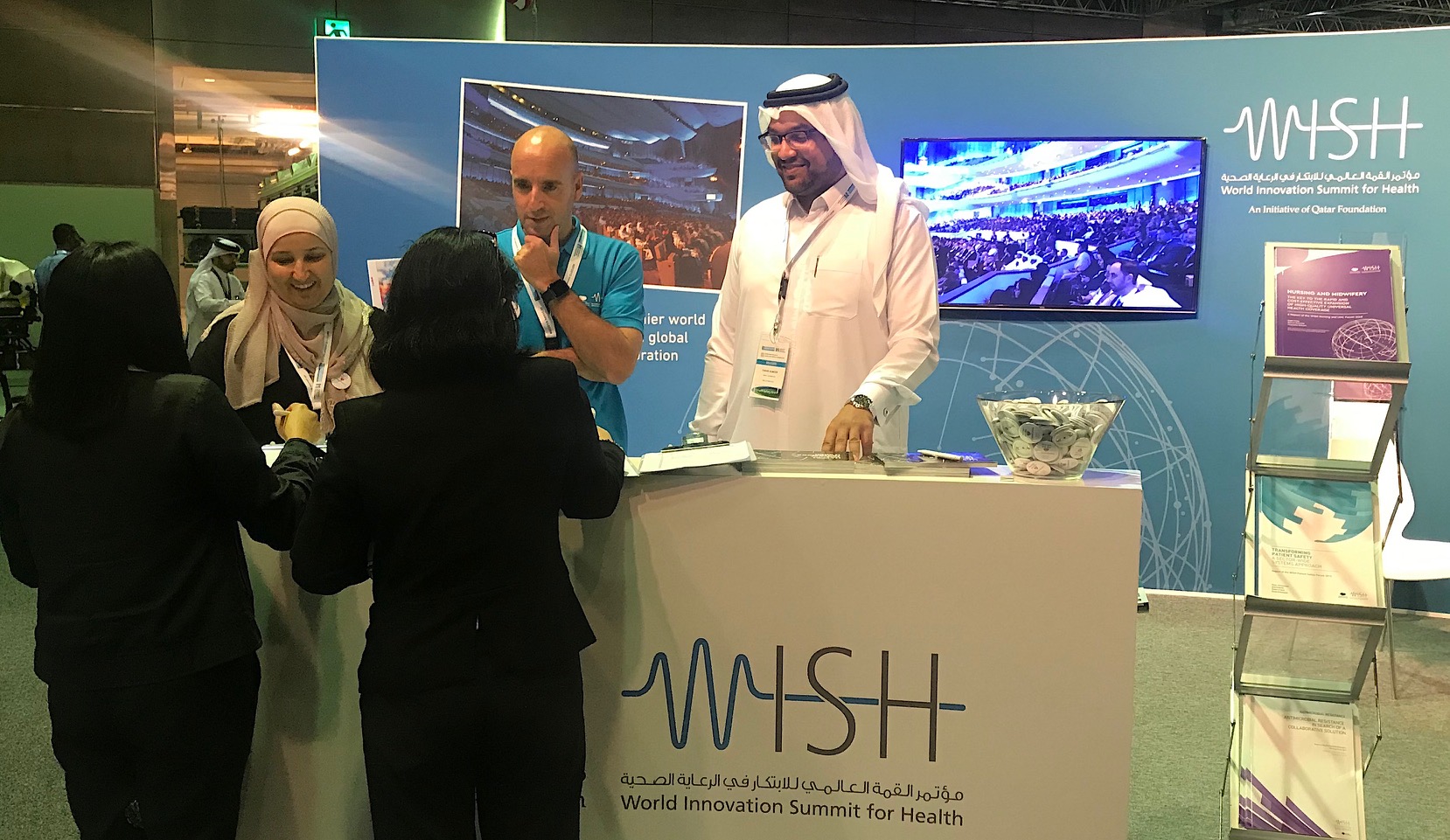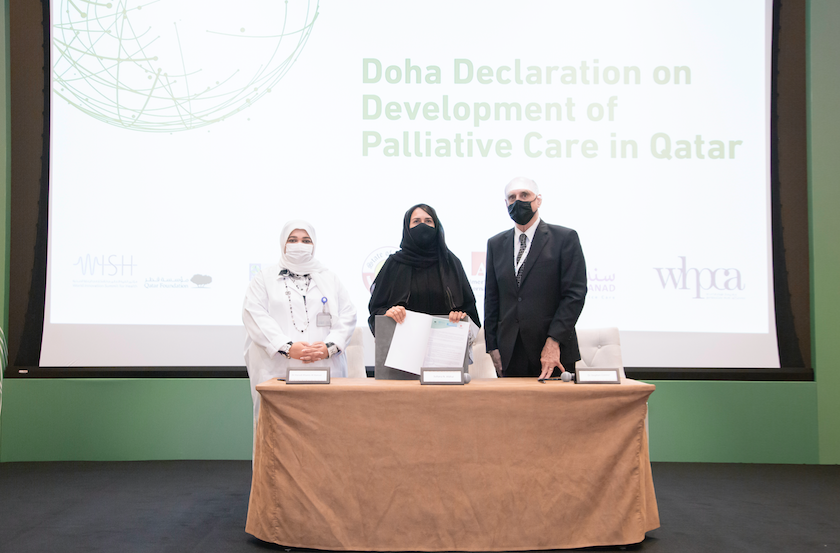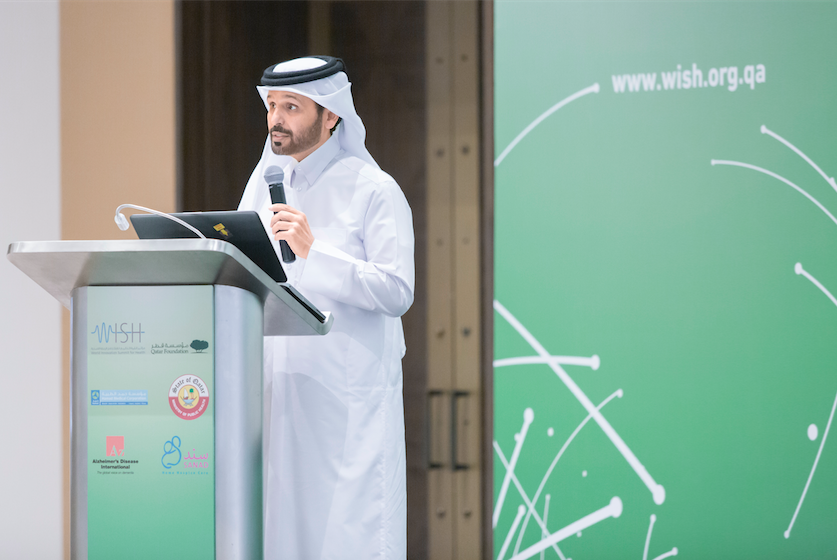WISH Survey Reveals Nurses In Qatar Feel Supported At Work

A survey conducted by the World Innovation Summit for Health (WISH), an initiative of Qatar Foundation (QF), has revealed that a strong support mechanism is in place for nursing professionals in Qatar.
Initial findings of the 2018 survey were presented at the recent Middle East Forum in Quality and Safety in Healthcare (MEF). They show that 89 percent of the nurses surveyed believe that they receive organizational support for learning and continuous improvement; 88 percent say there is sufficient teamwork within the units they work in; and 73 percent feel they are provided with management support in promoting patient safety.
WISH conducted the survey to investigate nurses’ perceptions of patient safety culture in Qatar. A WISH report published in 2015, titled ‘Transforming Patient Safety: A Sector-Wide Systems Approach’, highlighted gaps and barriers to achieving the goal of zero harm to patients. The findings of the global report led the WISH research team to conduct the Qatar-focused study.
Further research was carried out by WISH at MEF, with nurses filling out a survey on migration patterns and language barriers in the hospital environment, and all delegates at the conference invited to share their opinions on men in nursing. WISH also hosted a workshop titled ‘Creating a Culture of Safety: The Role of Nurses’ at the conference.
By using the Hospital Survey on Patient Safety Culture (HSOPSC), a tool originally used to assess patient safety amongst nurses in the US, WISH conducted a total of 167 surveys. The surveysmeasured perceptions on patient safety culture, including communication openness, feedback about errors, and staffing.
Maha El Akoum, Head of Content at WISH, who led the research project, said: “This study gives us a general overview of the perceived safety culture among nurses in Qatar. Our results show that patient safety culture is generally well-executed, with overall positive responses to the different measured composites.
“However, it is always important to avoid complacency. The WISH 2015 report highlighted that around the world patient safety is often mistakenly regarded as something to ‘fix’ rather than to ‘evolve’, and that error reporting should be viewed as a strategy that allows healthcare professionalsto learn from mistakes and that allows for continuous improvement in safety culture that is routinely monitored.”
WISH strongly believes in the empowerment of nurses in order to ensure patient safety. Last year, in collaboration with Hamad Medical Corporation, it launched the Nursing Now Qatar campaign, a Qatar chapter of the global Nursing Now campaign. The initiative aims to improve healthcare locally and globally by raising the profile and status of nurses worldwide, influencing policy-makers, and supporting nurses to lead, learn and build a global movement.
The most recent WISH conference, in November 2018, placed a strong focus on the subject of nursing. A panel discussion addressed the importance of investing in nursing and midwifery, as well as effective legislation, regulation, education and employment practices, in order to achieve a rapid and cost-effective expansion of high-quality Universal Health Coverage. It was chaired by Lord Nigel Crisp, co-chair of the All-Party Parliamentary Group on Global Health in the UK Parliament’s House of Lords, and co-chair of the ‘Nursing Now’ campaign.
WISH 2018 also hosted chief nursing officers from around the world, and held the global board meeting of ‘Nursing Now’ on its sidelines.



